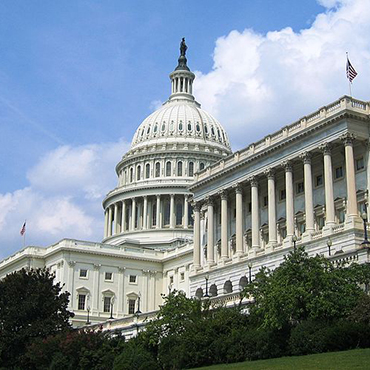NSA doesn’t deny spying on Congress
In response to a letter from a senator, the spy agency detailed its surveillance efforts without directly addressing whether it was collecting data on lawmakers.

The National Security Agency did not deny it spies on Congress when pressed by Sen. Bernie Sanders in a letter to Gen. Keith Alexander, the outgoing director of the agency.
In the Jan. 3 letter, Sanders defined spying as “gathering metadata on calls made from official or personal phones, content from websites visited or emails sent, or collecting any other data from a third party not made available to the general public in the regular course of business.”
The NSA, in damage control mode since June when leaks from former contractor Edward Snowden began detailing the agency’s surveillance efforts of foreign citizens and Americans, responded to the inquiry Jan. 4 in a statement that tiptoed around Sanders’ question but did not deny that the agency collects communications metadata from U.S. lawmakers.
“NSA’s authorities to collect signals intelligence data include procedures that protect the privacy of US persons,” the statement reads. “Such protections are built into and cut across the entire process. Members of Congress have the same privacy protections as all US persons. NSA is fully committed to transparency with Congress. Our interaction with Congress has been extensive both before and since the media disclosures began last June.”
Whether that “interaction” includes NSA surveillance of lawmakers’ communications was not directly addressed by the agency’s reply, however.
“We are reviewing Senator Sanders’s letter now, and we will continue to work to ensure that all members of Congress, including Senator Sanders, have information about NSA’s mission, authorities, and programs to fully inform the discharge of their duties,” the statement said.
In recent months, media reports – bolstered by information delivered by Snowden – have detailed how the NSA has been able to eavesdrop on leaders in Germany, Mexico, Brazil and a host of other allies.
Reports have also detailed how Americans’ metadata are also gobbled up by the NSA’s enormous surveillance systems, including those that tap into global fiber optic lines and others that harness data from tech companies such as Yahoo and Google. These actions particularly concerned Sanders, who cited in his letter a recent ruling by U.S. District Court Judge Richard Leon that such dragnets by the NSA were likely unconstitutional and “almost Orwellian.”
In late December, another judicial ruling – this one by U.S. District Court Judge William Pauley of New York – ruled that the NSA’s phone spying was a reasonable tool to combat terrorism.
The privacy debate is sure to rage on politically and in the courts, but the NSA’s non-denial that it spies on its overseers is likely to spark even closer attention from Congress.






